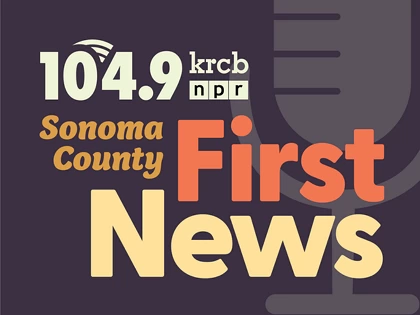
The Biden administration is announcing nearly $200 million in federal infrastructure grants to upgrade tunnels that carry streams beneath roads but can be deadly to fish that get stuck trying to pass through. Many of these passages known as culverts were built in the 1950s. They're blamed in part for declining populations of salmon and other fish that live in the ocean but return to freshwater streams to spawn. Although the bulk of the money is going to Pacific states such as Alaska and Washington, there also is a large amount for Maine and a few other East Coast states.
The Biden administration on Wednesday announced nearly $200 million in federal infrastructure grants to upgrade tunnels that carry streams beneath roads but can be deadly to fish that get stuck trying to pass through.
Many of these narrow passages known as culverts, often made from metal or concrete, were built in the 1950s and are blamed in part for declining populations of salmon and other fish that live in the ocean but return to freshwater streams to spawn.
By extension, fisheries — including tribal-run operations in the Pacific Northwest — have experienced losses they blame in part on such barriers as culverts and dams.
“We inherited a lot of structures that were built in a way that just did not properly contemplate the effect they were having on fish,” U.S. Transportation Secretary Pete Buttigieg said in an interview with The Associated Press. “You don’t have to be a fish enthusiast or ecologist to care about this. It’s very important for the livelihoods, economies and way of life in many parts of the country.”
Some of the 169 projects that make up the first batch in a $1 billion initiative being rolled out over five years under the 2021 Infrastructure Investment and Jobs Act would upgrade the culverts or replace them with bridges to allow water — and fish — to flow more freely.
The most-expensive project announced Wednesday is $25 million for Alaska to replace a dozen culvert sites on a major highway connecting Fairbanks and Anchorage with three new bridges and other fish-friendly structures. State officials say the funding will help protect five species of Pacific salmon that are considered vital to the region’s economy.
Washington state, which has been working for years under a court order to improve fish crossings under state roads, is receiving $58 million in federal grant money — the most for any state in the first round of the culvert projects.
Tribal governments there won an injunction in 2013 prohibiting the construction of new culverts deemed to harm fish habitats and requiring state officials to accelerate the removal of existing ones. The U.S. Supreme Court later deadlocked on the case, 4-4, allowing the lower court order to stand.
As of June, Washington had removed 114 culvert barriers and helped clear 502 miles (808 kilometers) of blocked salmon and steelhead habitat, according to the state’s Department of Transportation.
Sen. Maria Cantwell, a Washington Democrat who chairs the Senate Committee on Commerce, Science, and Transportation, said the federal money will only add to that effort.
“Washingtonians are going to see more salmon coming back to rivers all across the Evergreen state,” Cantwell said in a news release.
While the most funding went to Washington and Alaska, Maine was next with $35 million. Four other East Coast states also received grants — Massachusetts, New Hampshire, Virginia and North Carolina — but for much smaller amounts.
Other Western states to receive money are California, Oregon and Idaho.
Jessica Helsley, director of government affairs for the Wild Salmon Center, which advocates for fish crossings including culvert removal, said the effort will be much stronger with the federal government as a committed partner.
“It creates a new unique dialogue that otherwise might have been a little slower to develop,” Helsley said. “It used to be you’d go talk to an infrastructure department and say, ‘I’m here to talk fish,’ and you’d get ignored. Well, now, thanks to Congress, you can say, ‘I’m here to talk fish, and I have money to work with.’”

 Live Radio
Live Radio




